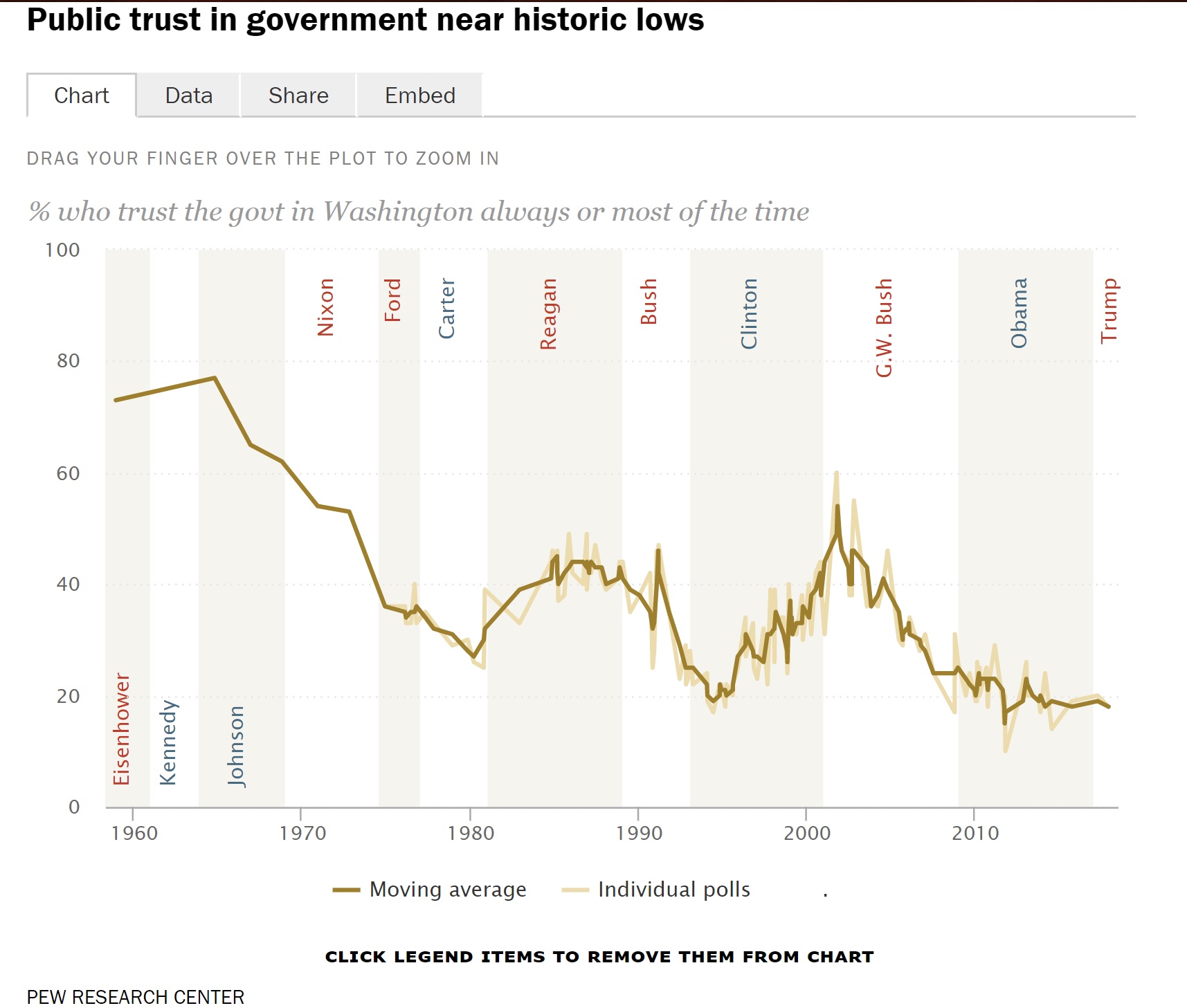
Each day Americans wake up to hear new revelations of government incompetence that enabled the Parkland, Florida school shooting. First it was the Federal Bureau of Investigation’s failure to follow existing protocols to investigate a highly detailed tip that the shooter was planning and had the means to do exactly what he did. The FBI and local police received at least four separate tips warning of the shooters’ plans and means, and local police had received 45 calls summoning them to the family’s home since 2008.
Then we learned of the police officer — the only person initially onsite able to return the shooter’s deadly force and tasked by his salary-paying community with doing precisely that — hesitated for approximately four minutes to enter the high school as students lay dying. Then local sources told reporters three other Broward County police officers joined that onsite officer in hiding behind their vehicles until police from another jurisdiction showed up. Reports say the Broward County police didn’t even follow the others inside.
Then it was that police didn’t know they were watching the wrong security tape, putting them off the shooter’s whereabouts by 20 minutes, leaving a mass murderer to endanger more people longer. To add insult to literal injury, the hesitating onsite school police officer, Scot Peterson, was allowed to resign and will receive a lifetime public pension of approximately $60,000 a year plus benefits.
This kind of government employee incompetence with horrific consequences is by no means limited to the Parkland killings. Instead, it is endemic to U.S. government at all levels, with consequences big and small. For example, my colleague Rachel Stoltzfoos reports that government incompetence failed to prevent a slew of recent high-profile mass killings:
Law enforcement protocols already in place also might have stopped the Texas church shooting in 2017, and the Charleston church shooting in 2015. The gunman who carried out the Texas massacre had a history of domestic violence that should have prevented him from legally buying a gun. But the Air Force conceded after the shooting it had failed to enter his name into the federal database that would have prevented his gun purchase.
Similarly, paperwork and communication fumbles between the FBI and local law enforcement resulted in a background check error that allowed Dylann Roof to buy a gun in South Carolina, which he later used to massacre congregants at a Charleston church.
If government agencies can’t follow existing violence-prevention laws and procedures, how can they be trusted to effectively implement additional rules that wild-eyed partisans insist will “do something” to prevent mass murder?
This point contains two related threads: U.S. government forces citizens to support a layer of incompetent fat that impedes our best interests; and government failures force us into a burdened mode of self-government. We have to both pay for government to not perform basic functions like protect citizens from criminals and carry out justice, and accomplish those same ends ourselves if we want them done at all.
As Charles Murray says, government has become an “insurable hazard,” but only to the small proportion of Americans with the requisite money or connections to secure such insurance. The rest of us are sitting ducks. And we know it.
Some Police Aren’t Doing the Job Their Benefits Reward
On the premise that police put themselves at risk of maiming and death on our behalf, we compensate that with gold-plated benefits, early retirements, and huge family compensation packages. Yet what we too often get in exchange are not people who put themselves at the risk they signed on to carry and have accepted high compensation for, but officers whose attitude is more “Let me know when the danger is over and then we’ll come out of our cars to clean up the carnage.”
Now, I understand that attitude in situations like gang or drug warfare, where there are no innocent combatants, but not in active-shooter-massacres-innocents scenarios like Parkland. As Michael Graham points out, the “protect police before civilians” approach is an active policy in some locales. It logically leads to more spirited citizens demanding the power to handle government-dominated activities themselves, such as the power to protect themselves on the spot with concealed-carry licenses.
I think self-defense is every citizen’s responsibility, not exclusively for police and military, but as William Voegeli points out in “Pity Party,” it’s strikingly strange that people who think defense is exclusively government’s job apparently don’t care about making sure government is effective at it, or just about any other functions they want government running. Government ineffectiveness deeply undermines their public case for government-run everything. Americans are noticing that, and responding by opting out of the system they are forced nevertheless to support. Applications for concealed-carry permits and gun-training registrations spike after just about every publicized shooting.
Government Is Failing At Its Largest Pursuits
It’s not just in self-defense, either. Homeschooling increased 62 percent from 2003 to 2012, the most recent years numbers are available. Over the past decade, enrollment in public charter schools — choice schools that can be run by local boards of parents and community leaders instead of school districts — has tripled. Enrollment in private school choice programs has skyrocketed in the past decade, and seven in ten parents say their first choice is not their kids’ assigned public school.
Or look at health care. Sales of short-term health insurance plans have jumped, because those are exempt from burdensome Obamacare (and other) mandates that spike costs. Since Obamacare passed, the number of people who have chosen health-cost-sharing over insurance has doubled. That’s basically an arrangement where participants pool their money to cover members’ health expenses, which are not 100 percent guaranteed to be paid. They’re opting out of a system government ruined.
Military and police, education, and health care by far dominate government spending, and in all these sectors the half of Americans who do pay taxes sponsor inept systems that don’t serve us well. We haven’t even mentioned the myriad ways in which the U.S. military has gone off-mission from securing clear national defense interests, such as sending people on junkets in Germany in exchange for free college tuition, spending billions meddling in random countries, and boosting the egos of social activists who want to normalize mental illness.
We haven’t talked immigration policy, which in practice often preferences noncitizens above citizens (how many Americans have legally secured free public education in a foreign country?). We haven’t talked how Congress reinforced intelligence agencies’ spying power despite revelations indicating those agencies used it to advance partisan politics at the expense of Americans’ constitutional rights. Neither have we mentioned Medicare, Medicaid, and Social Security, where today’s productive people are forced to fund other people’s social welfare that will implode before our chance to “benefit” from their substandard offerings.
We pay both directly, through these transfer programs, and indirectly, in their market-warping effects. For example, Medicaid or Medicare typically doesn’t pay full price for care despite hiking the price of that care through artificially inflating demand, so doctors raise prices on everybody else to make that money back to stay in business. The people who pay their way plus everybody else’s get stuck with an escalating cycle of inflated prices and worsening care, exemplified by Obamacare’s death spiral. Gee, thanks, government!
All this makes it no mystery that public trust in government remains near record historical lows. Government does not deserve our trust. It fails at making websites, it fails at educating children, it fails at increasing access to quality health care, it fails to use public resources on the public contributing those resources, and, worst of all, it fails to keep disturbed people from murdering children.

While it’s disgusting we have to shoulder these important responsibilities while paying for a massive apparatus of people who are supposed to do the exact same things yet consistently fail, it’s also a push in the direction of self-government, a uniquely American habit in sore need of exercise. We should all be managing our our own health care, preparing for our own old age, and assuming responsibility for our children’s education. We should also be ready to defend ourselves and others until the police can show up. This is what self-government means.
The Vicious Cycle of Downplayed Failure
The real indignity is having to pay for and wade through a bureaucracy intent on undermining our self-government so they can live off our productivity while not upholding their end of our social compact. When we do their jobs ourselves, it highlights their incompetence and our lack of need for their systems. That erodes the justification for their sinecures and power to frustrate our choices. Proving our capacity to run our own lives is an existential threat to their way of life.
This is why bureaucracies almost always respond as Broward County Sheriff Scott Israel has to revelations of his department’s incompetence: “Of course I won’t resign…I’ve given amazing leadership to this agency.” Instead he argues for depriving citizens of the most efficient means to fight back against criminals his deputies won’t fight themselves. In other words, he wants to take away the workarounds Americans have for his corrupt and ineptly run system.
Americans clued in to our government’s persistent betrayals of its promises — a group that expands with every major bureaucratic failure such as Parkland — will only respond by gripping their guns, kids, and cash-pay doctors tighter. Instead of heeding the people’s frustration, the bureaucrats and their sympathizers and enablers have largely reacted with more dramatic demonization. Instead, they need to do what will end this escalating cycle: admit failure, drop fantastical promises of utopia on earth, and slowly but surely establish more-limited public services that actually materialize.









